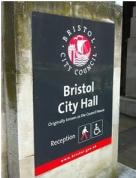Thom Oliver
The ultimate Zombie Idea of Local Government lives on in the West of England but will budgetary and party political challenges spell an end for the directly elected mayoral model?
Proposals for an elected mayor model first emerged in a Department of the Environment consultation paper in 1991 as part of another comprehensive review of local government. It was part of that same review that led to the replacement of the ‘community charge’ with the council tax and the creation of the Local Government Commission. Whilst given little attention at the time ‘The Internal Management of Local Authorities in England’ consultation gave us the first mentions of cabinets in local government, council managers and directly-elected mayors. Since then the idea of directly elected mayors has been dealt near fatal blows but still emerges as one of the battery of central government medications to cure the ills of local government.
I get knocked down but I get up again
The policy ideal of elected mayors has been advocated by a range of politicians of different hues, each of whom have championed the idea only to find themselves confronted with new setbacks. First up, of all the responses to the 1991 consultation from county councils, district councils, London and metropolitan boroughs not one was in favour of elected mayors. Labour under Blair grabbed hold of the idea and in government legislated for elected mayors through the Local Government Act 2000. However when offered the option of a move away from committee based structures, few opted for a directly elected mayor and cabinet model with the majority choosing the leader and cabinet model. Whilst the Act succeeded in moving councils away from the committee system, very few referendums were held to move to elected mayors. As the tide ebbed back to committees, plans for directly elected mayors were seemingly left high and dry.
That was until the Localism Act 2011 and the mandated referendums of May 2012 when directly elected mayors became the solution again. The voters of Birmingham, Manchester, Newcastle, Nottingham, Sheffield, Wakefield, Coventry, Leeds and Bradford all kicked the idea to the long grass. However the policy ideal lives on, and eyes are on Bristol and its newly elected independent mayor. But what are the prospects for success for both the man and the idea, and just how has this idea survived such a tumultuous ride in the face of significant and regular challenges to its worthiness and legitimacy?
The challenge for the newly elected mayor of Bristol
George Ferguson, architect, entrepreneur and purveyor of red trousers, is the man tasked with carrying forward the brow beaten ideal of directly elected mayors and championing a cause in the face of numerous challenges.
Whilst there are hopes of an independents revolution as argued by Martin Stott following George’s cannibalism of votes from the Lib Dems, Conservatives and Labour, party politics seemingly lives on and has surfaced abruptly as he tries to form his Rainbow cabinet. Surprising some by offering a composition based on vote proportions in the mayoral vote all parties were offered a place at the table (3 for Labour whose candidate Marvin Rees had come in a solid second place, 1 Liberal Democrat, 1 Conservative and 1 Green). George invoked a game of party political unpluralist ping pong. The Greens, Conservatives and Liberal Democrats moved to embrace the ‘new mood’ but Labours decisions were more protracted. First the local party voted against their councillors sitting on the cabinet, next up the council group voted by a small margin that they would join George only to be denied later through being overruled by Labours National Executive Committee. A flurry of press releases, resignations and regretful declines of cabinet offers later, George has been left with a cabinet of three and three empty seats, the vacant cabinet posts being taken on by Ferguson himself.
At first look it would seem a politically expedient option for Labour to not sit at George’s table as he makes a prospective £36million worth of cuts. However some have stressed they have misread the mood of the city. The pre-Ferguson Lib Dem administration through star chambers and cross party working had steered through over £55million worth of cuts impressively without drawing protests onto the streets of the city. Labour has seemingly chosen to sit back in ‘constructive opposition’ remaining untainted by Ferguson’s budget and potentially riding back in as white knights to join George once the budget has been passed.
It remains to be seen whether Ferguson will ask other parties to fill the Labour gaps or whether he will issue a now or never ultimatum for them to join now or remain out of the cabinet for the considerable future.
Killing the zombie?
The challenge for George as an Independent in the party political world is hard but if he fails would that be the end of the line for the idea of elected mayors? All eyes will be on Bristol. The yes to mayor vote in Bristol and the election of George Ferguson showed there was an appetite for something different, if not for elected mayors.
The idea of directly elected mayors has survived this long as the model hasn’t proved itself but it hasn’t been disproved. A recent guardian piece posited much hope for George in Bristol but if George and his rainbow cabinet in Bristol don’t succeed, it may be the final straw in killing the Zombie.
… Or perhaps Michael Heseltine will re-awaken the zombie idea of British Local Government:
I was disappointed that more cities did not choose to opt for a mayor. It confirmed my fear that relatively few would vote and that party loyalties would determine the outcomes. I believe this issue needs to be revisited to give our cities the influence and leadership commonly found in similar economies.
Dr Thom Oliver is a Postdoctoral Research Fellow at Oxford Brookes Business School. He completed his PhD, exploring the representative role of councillors on appointed bodies, at INLOGOV in 2011. He currently lives in Bristol and has recently rejoined INLOGOV as an Associate. Follow his Twitter account here, and read his own blog here.





